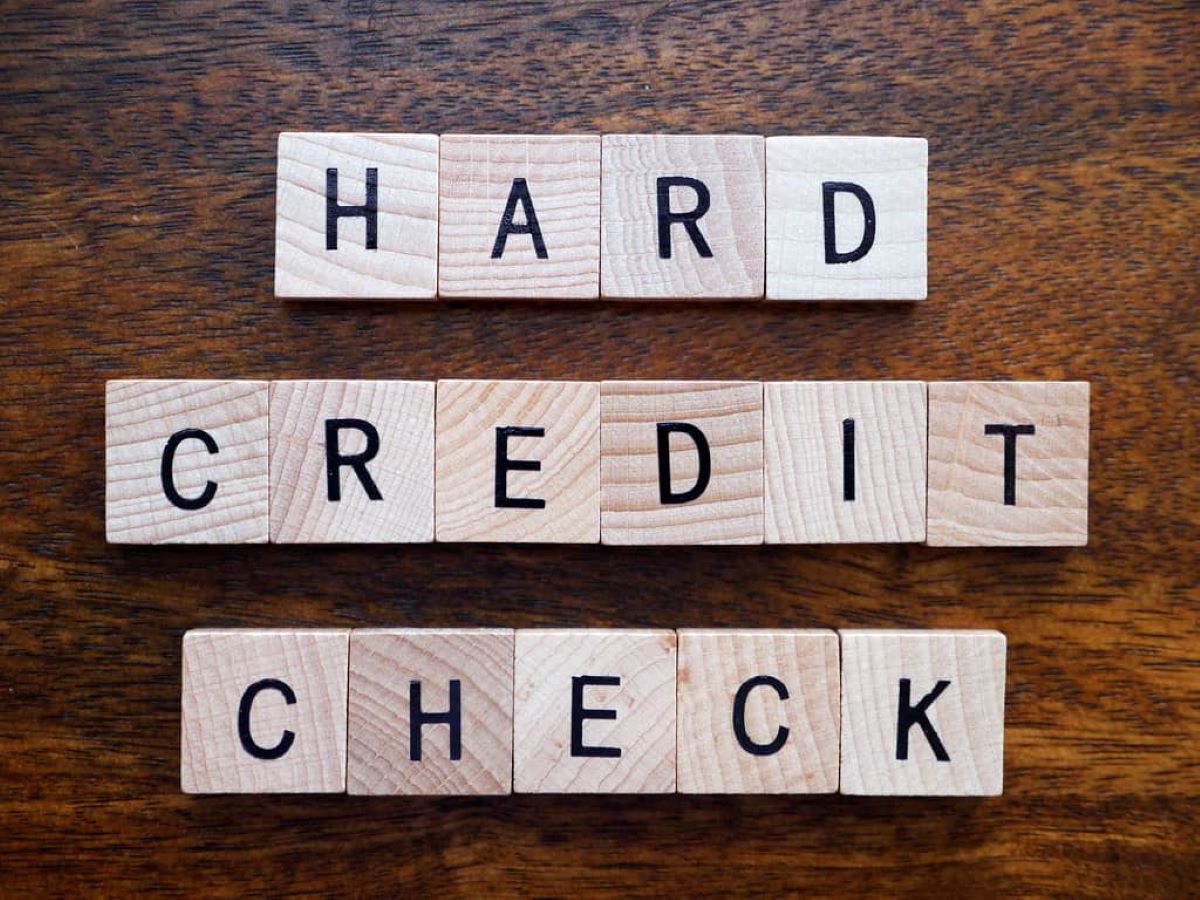

Finance
How Does A Deed In Lieu Affect My Credit Score
Modified: March 1, 2024
Learn how a deed in lieu can impact your credit score in the realm of finance. Discover the implications and potential consequences involved.
(Many of the links in this article redirect to a specific reviewed product. Your purchase of these products through affiliate links helps to generate commission for LiveWell, at no extra cost. Learn more)
Table of Contents
Introduction
When it comes to managing your finances, unforeseen circumstances can sometimes lead to difficult decisions. One such decision is opting for a Deed in Lieu, which can have a significant impact on your credit score. So, what exactly is a Deed in Lieu and how does it affect your credit?
A Deed in Lieu, also known as a Deed in Lieu of Foreclosure, is a legal agreement between a borrower and a lender. In this arrangement, the borrower willingly transfers the ownership of the property to the lender in exchange for being released from their mortgage obligations. This option is typically pursued when a homeowner is facing financial challenges and is unable to make their mortgage payments.
While a Deed in Lieu can provide relief for homeowners in distress, it is crucial to understand the impact it can have on your credit score. Your credit score is a numerical representation of your creditworthiness, and it plays a vital role in determining your eligibility for future loans, mortgages, or credit cards.
In this article, we will explore how a Deed in Lieu affects your credit score, the factors that determine its impact, and steps you can take to rebuild your credit afterward.
What is a Deed in Lieu?
A Deed in Lieu is a legal agreement between a borrower and a lender where the borrower voluntarily transfers the ownership of the property to the lender to satisfy a mortgage debt. Essentially, it is an alternative to foreclosure that allows the homeowner to avoid the lengthy and costly process of going through foreclosure.
Here’s how it works: when a homeowner is struggling to make mortgage payments and is at risk of foreclosure, they can approach their lender to discuss the possibility of a Deed in Lieu. If the lender agrees, the homeowner signs over the deed to the property, and the lender assumes ownership.
In exchange for transferring the property, the lender agrees to release the homeowner from any further mortgage obligations, including the outstanding debt. This can provide relief to homeowners who are facing financial hardships or are simply unable to keep up with their mortgage payments.
It is important to note that a Deed in Lieu is typically only an option when other alternatives, such as loan modification or selling the property, have been explored and deemed unattainable. The homeowner must demonstrate financial hardship and provide documentation to support their inability to continue with their mortgage payments.
By opting for a Deed in Lieu, homeowners can avoid the negative consequences of foreclosure, such as damaging their credit score and the potential for a deficiency judgment. However, it is essential to understand that a Deed in Lieu will still have implications for your creditworthiness, and it should not be taken lightly.
Now that you have a better understanding of what a Deed in Lieu is let’s explore how it can affect your credit score.
How Does a Deed in Lieu Work?
When considering a Deed in Lieu, it’s important to understand the step-by-step process involved. While the specifics may vary depending on local laws and individual circumstances, the general framework remains the same. Here’s an overview of how a Deed in Lieu works:
- Evaluation and Initiation: The homeowner initiates the conversation with the lender, expressing their financial difficulties and interest in pursuing a Deed in Lieu as an alternative to foreclosure. The lender will evaluate the homeowner’s situation, including their ability to continue making mortgage payments and the current market value of the property.
- Negotiation and Agreement: If the lender determines that a Deed in Lieu is a viable option, negotiations will take place to establish the terms of the agreement. This includes finalizing the release of the homeowner’s mortgage debt and determining any additional provisions or obligations, such as the homeowner vacating the property by a certain date.
- Documentation and Transfer: Once the terms of the agreement are agreed upon, the homeowner and lender will formalize it through legal documentation, typically prepared by an attorney or a real estate professional. This documentation will outline the transfer of ownership from the homeowner to the lender and include any conditions or stipulations.
- Property Inspection: Before finalizing the Deed in Lieu, the lender may conduct an inspection of the property to assess its current condition and ensure it meets certain standards. This ensures that the property is in an acceptable state to be transferred to the lender.
- Transfer of Ownership: Once all the necessary documentation is in place and the property has been inspected, the transfer of ownership takes place. The homeowner signs the deed over to the lender, effectively transferring their ownership rights and responsibilities. At this point, the homeowner is no longer the legal owner of the property, and the lender assumes ownership.
- Resolution of Mortgage Debt: In exchange for the Deed in Lieu, the lender agrees to release the homeowner from the remaining mortgage debt. However, it’s important to note that the homeowner may still be responsible for any other liens or debts related to the property, such as unpaid property taxes or homeowners association fees.
It’s crucial to discuss any potential tax implications or legal consequences with a qualified professional prior to pursuing a Deed in Lieu. Understanding the process and its implications can help you make an informed decision about whether it is the right option for your situation.
Impact of a Deed in Lieu on Credit Score
Opting for a Deed in Lieu can have a significant impact on your credit score. While it may provide some relief compared to foreclosure, it is still considered a negative event on your credit history. Here’s a closer look at how a Deed in Lieu can affect your credit score:
1. Credit Score Drop: When a Deed in Lieu is reported to the credit bureaus, it will likely lead to a significant drop in your credit score. The exact decrease will depend on various factors, including your previous credit standing and the credit scoring model used.
2. Presence on Credit Report: A Deed in Lieu will remain on your credit report for seven years from the date it is reported. This can impact your ability to obtain new credit or favorable interest rates during that time.
3. Impact Similar to Foreclosure: While a Deed in Lieu is typically seen as a less damaging option compared to foreclosure, the impact on your credit score can be similar. Both indicate to lenders that you were unable to fulfill your mortgage obligations, resulting in a negative mark on your credit history.
4. Potential for Credit Denial: Having a Deed in Lieu on your credit report may make it more challenging to obtain new credit in the future. Lenders view it as an indication of financial instability and may be hesitant to extend credit to you, especially shortly after the event.
5. Higher Interest Rates: If you are able to secure new credit after a Deed in Lieu, you may encounter higher interest rates compared to borrowers with stronger credit histories. Lenders may consider you to be a higher risk and adjust the interest rate accordingly.
It’s crucial to keep in mind that everyone’s credit situation is unique, and the impact of a Deed in Lieu on your credit score may vary. Additionally, lenders may consider other factors, such as your recent credit history and overall financial stability, when evaluating your creditworthiness.
In the next section, we will explore the factors that determine the extent of the credit score impact and discuss ways to gradually rebuild your credit after a Deed in Lieu.
Factors that Determine Credit Score Impact
The impact of a Deed in Lieu on your credit score is influenced by several key factors. Understanding these factors can help you better assess the potential impact and make informed decisions about managing your credit. Here are the primary factors that determine the credit score impact of a Deed in Lieu:
1. Credit History: Your credit history plays a significant role in determining the impact of a Deed in Lieu on your credit score. If you had a strong credit history with a high score prior to the event, the negative impact may be more substantial compared to someone with a lower credit score.
2. Credit Standing: The overall state of your credit standing at the time of the Deed in Lieu can affect the credit score impact. If you had other delinquencies, late payments, or collections, the impact on your credit score may be less severe as lenders may already view your creditworthiness as compromised.
3. Credit Utilization: Credit utilization refers to the percentage of your available credit that you are currently using. Higher credit card balances or debts can have a greater negative impact on your credit score in combination with a Deed in Lieu. Maintaining low credit utilization can help mitigate the impact.
4. Length of Credit History: The length of your credit history is another important factor. If you have a long-standing credit history with positive payment patterns, the impact may be less significant. Conversely, if you have a shorter credit history, the effect on your credit score could be more pronounced.
5. Other Negative Events: If you have other negative events on your credit report, such as bankruptcies or foreclosures, the impact of a Deed in Lieu may be diminished. Lenders may view the Deed in Lieu as a preferable alternative to more severe credit problems.
It’s important to note that the credit score impact of a Deed in Lieu is not solely based on these factors. Credit scoring models, such as FICO or VantageScore, consider a range of additional criteria to generate your credit score. These models take into account factors like payment history, types of credit, and recent credit inquiries.
Remember, while a Deed in Lieu can have a negative impact on your credit score, it is not permanent. You can take steps to rebuild your credit over time, which we will explore in the next section.
Credit Score After a Deed in Lieu
After going through a Deed in Lieu, it’s natural to wonder about the state of your credit score and how it will be affected. While a Deed in Lieu can have a significant negative impact on your credit score, it’s important to remember that it is not the end of your creditworthiness. With time and responsible financial habits, you can gradually rebuild your credit. Here’s what you can expect in terms of your credit score after a Deed in Lieu:
1. Initial Credit Score Drop: Following a Deed in Lieu, you can expect a notable drop in your credit score. The exact decrease will depend on factors such as your previous credit standing and the specific credit scoring model used. However, the impact can range anywhere from 100 to 300 points or more.
2. Length of Credit Score Impact: The negative impact of a Deed in Lieu on your credit score will persist for several years. It will remain on your credit report for seven years from the date it is reported. However, its influence on your credit score will gradually decrease over time as long as you establish positive credit behaviors moving forward.
3. Credit Rebuilding Opportunities: While your credit score may be initially low after a Deed in Lieu, there are still opportunities to rebuild your credit. Paying your bills on time, maintaining low credit utilization, and avoiding new debt can all contribute to improving your credit standing over time.
4. Potential for Gradual Score Increase: With responsible credit management, you can expect to see a gradual increase in your credit score over time. By consistently demonstrating financial responsibility and positive credit behaviors, you can rebuild your creditworthiness and improve your credit score.
5. Access to New Credit: Obtaining new credit after a Deed in Lieu may be challenging initially. Lenders may view you as a higher-risk borrower. However, as time passes and you establish a positive credit history, you can regain access to credit and potentially secure favorable interest rates and loan terms.
It’s important to be patient and persistent in rebuilding your credit after a Deed in Lieu. While the process may take time, it is possible to recover and improve your credit score by practicing good financial habits and maintaining responsible credit behavior.
In the next section, we will discuss steps you can take to actively rebuild your credit after a Deed in Lieu.
Rebuilding Credit After a Deed in Lieu
Rebuilding your credit after a Deed in Lieu is an important step towards regaining your financial stability. While the process may take time, there are several steps you can take to actively rebuild your credit. Here are some strategies to consider:
1. Review Your Credit Report: Start by obtaining a copy of your credit report from the major credit bureaus. Carefully review it for any errors or discrepancies related to the Deed in Lieu. If you identify any inaccuracies, dispute them with the respective credit bureau to have them corrected.
2. Establish a Budget: Create a realistic budget that allows you to cover your essential expenses while leaving room for savings. Having a clear understanding of your financial situation will help you make smarter financial decisions, avoid unnecessary debt, and ensure that you meet your future obligations promptly.
3. Pay Bills on Time: Consistently paying your bills on time is one of the most crucial factors in rebuilding your credit. Set up automatic payments or reminders to help you stay organized and avoid late payments. Even a single late payment can have a negative impact on your credit score.
4. Manage Existing Credit Responsibly: If you still have existing credit accounts, such as credit cards or loans, make sure to manage them responsibly. Keep your credit utilization low, ideally below 30% of your available credit limit. Paying off balances in full each month can also have a positive impact on your credit score.
5. Apply for New Credit Selectively: While it may be tempting to apply for new credit immediately after a Deed in Lieu, it’s important to be selective and cautious. Apply for new credit only when necessary and make sure to choose credit products that align with your financial goals. Avoid excessive credit applications, as each one can result in a hard inquiry on your credit report.
6. Consider Secured Credit Cards: If your credit options are limited, you may want to consider applying for a secured credit card. Secured cards require a security deposit, which acts as collateral, and can be a good way to rebuild your credit. Make small purchases and pay them off in full each month to demonstrate responsible credit use.
7. Seek Credit Counseling: If you’re struggling to manage your finances or need guidance on rebuilding your credit, consider reaching out to a reputable credit counseling agency. They can provide expert advice and assist you in developing a personalized credit rebuilding plan.
Remember, rebuilding your credit after a Deed in Lieu is a gradual process that requires patience and perseverance. Focus on building positive credit habits and maintaining responsible financial management. With time, you can see an improvement in your credit score and regain your financial footing.
Finally, it’s essential to learn from past experiences and make sound financial decisions moving forward. This will not only help you rebuild your credit but also ensure long-term financial stability.
Conclusion
A Deed in Lieu can be a challenging but potentially beneficial option for homeowners facing financial difficulties. While it provides a way to avoid foreclosure, it does have a significant impact on your credit score. Understanding the implications and taking proactive steps to rebuild your credit is crucial for your financial future.
Through this article, we have explored the concept of a Deed in Lieu, how it works, and its impact on your credit score. We discussed factors that determine the extent of the credit score impact and provided insights into the credit rebuilding process after a Deed in Lieu.
It’s important to remember that while the initial credit score drop can be significant, it is not permanent. By practicing responsible financial habits, such as paying bills on time, managing existing credit wisely, and being selective in applying for new credit, you can gradually rebuild your credit over time.
Rebuilding your credit after a Deed in Lieu requires patience, perseverance, and a commitment to improving your financial habits. It’s an opportunity to learn from past experiences and make better financial decisions moving forward.
If you are considering a Deed in Lieu or have already gone through the process, it is advisable to consult with a financial professional or credit counselor who can provide guidance tailored to your specific situation.
Remember, your credit score is not the sole measure of your financial worth. It’s an ongoing journey, and with responsible credit management and a focus on rebuilding, you can regain your financial stability and work towards a brighter financial future.














